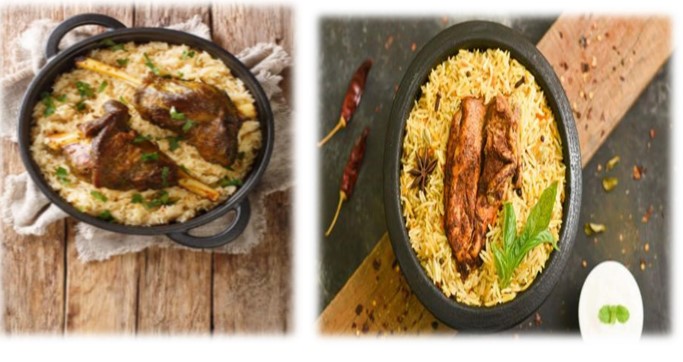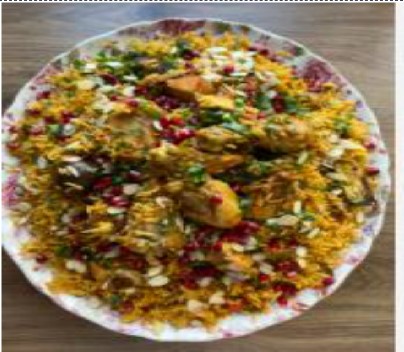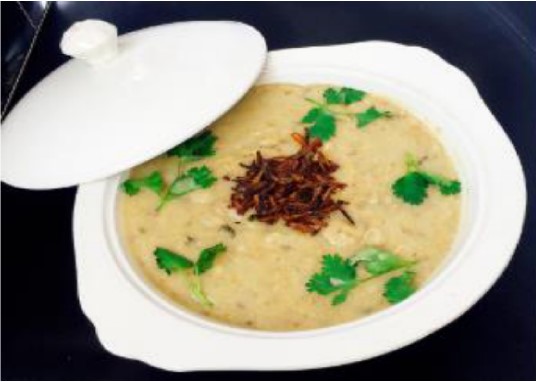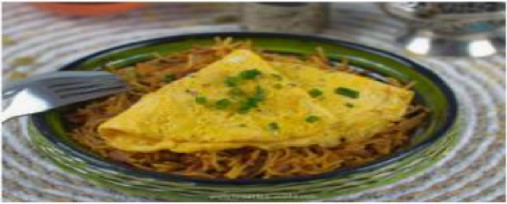1.Khuzi (National Dish):
This dish features roast lamb, often served with nuts, vegetables, and raisins, all over a bed of spicy rice. The meat provides protein, while the rice and vegetables offer carbohydrates and vitamins.
What it is: Khuzi is a traditional Emirati dish that involves a whole roasted lamb or mutton, slow-cooked to tender perfection, and served on a bed of fragrant rice infused with aromatic spices like cardamom, cinnamon, and saffron.
How it’s prepared: The lamb is often marinated in a blend of spices and then roasted, while the rice is cooked with a broth from the lamb and infused with spices.
What it’s served with: Khuzi is typically garnished with roasted nuts, raisins, and sometimes even a whole boiled egg.

- Machboos
Machboos, also known as Kabsa or Majboos, is a popular Middle Eastern dish, especially in the Arabian Peninsula, that is a one-pot chicken and rice dish, often considered the national dish of several countries in the region.
What it is:
Machboos is a fragrant, spiced rice dish, typically made with chicken or mutton, and cooked in a flavorful broth.
How it’s served:
Machboos is often served in large platters, shared among family and friends, and eaten with hands.
How it’s prepared:
The dish is known for its unique blend of spices, often including dried limes (Lumi) and a mix of whole and powdered spices.

3.Harees:
This traditional Emirati dish, particularly popular during Ramadan and festive occasions, is made from wheat, meat (usually chicken or lamb), and a pinch of salt. The wheat is soaked overnight, then cooked with meat until it reaches a smooth, porridge-like consistency. Harees is a hearty dish that provides a good source of protein, carbohydrates, and essential nutrients.
Here’s a more detailed look at Harees:
Ingredients: The main ingredients are coarsely ground wheat or bulgur, meat (chicken or
lamb), and spices.
Preparation: The dish is slow-cooked, resulting in a thick, porridge-like consistency.
Cultural Significance: Harees is a popular dish during Ramadan, weddings, and other social gatherings, symbolizing hospitality and generosity.
Popularity: It’s a staple in the Arab states of the Persian Gulf, especially during Ramadan.
Serving: It’s often served in large dishes and eaten with the hands.
Variations: Harees can be made with chicken or lamb, and some prefer it with dry fruits and barista, while others prefer it with olive oil.
Origin: Harees is a traditional dish that originated from Hadramout.

4.Balaleet:
Balaleet is a sweet and savory breakfast dish that is a staple in Emirati homes. It consists of vermicelli noodles, cooked with sugar and saffron, and served with eggs and a sprinkle of cardamom. Balaleet is a good source of carbohydrates and can be a source of protein from the eggs.
Here’s a more detailed breakdown:
Ingredients:
The dish typically features vermicelli noodles, sugar, cardamom, saffron, rose water, and eggs for the omelette.
Flavor Profile:
Balaleet offers a unique combination of sweet and savory flavors, with the noodles providing a light sweetness that complements the savory omelette.
Preparation:
The vermicelli is cooked with butter, saffron, cardamom, and rose water, and then topped with a savory omelette.
Origin:
Balaleet is a popular dish in the Gulf region, particularly in the United Arab Emirates, and is considered a traditional Emirati breakfast dish.
Variations:
Some variations include adding nuts, dried fruits, or sautéed onions or potatoes.



